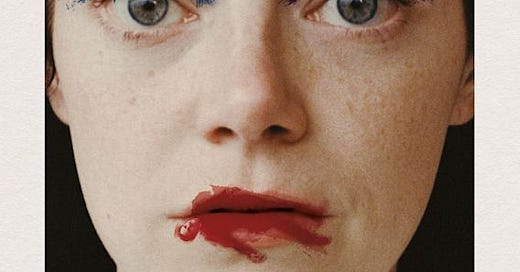Book Review: POOR THINGS (1992) by Alasdair Gray
It’s nigh-impossible to review this novel without spoiling at least some of the plot, but here goes …
POOR THINGS takes its foremost inspiration from Mary Shelley’s FRANKENSTEIN (1818). The story centers around a clandestine medical experiment, taking place in the 19th century. The eccentric Scottish scientist Godwin Baxter uses (fresh) human body parts to create an adult woman named Bella — whose mind is a blank slate. His friend Archibald McCandless, a Scottish physician, learns about this experiment — and falls in love with Bella.
The author doesn’t go into the technical details of how this amazing experiment was done. Going by my layman knowledge of medicine, it seems pretty impossible that a 19th-century surgeon could pull it off. (Caveat: Very recent news about a scientific breakthrough in reviving dead animals makes POOR THINGS seem a little less impossible now than it used to. Interesting times…)
As the novel progresses, it becomes obvious that this is more parable than science fiction. The woman Bella, “created” by Godwin Baxter (whom she calls “God” — rather on the nose) needs to be taught and educated, and this is the story — or parable — about maturing into a modern independent woman in the late 19th century.
We follow the extremely rapid mental growth of Bella, who eventually escapes her “creator” and elopes with a shady Englishman to experience the world. As you might expect, her adventures are varied with lots of ups and downs. There’s something familiar about this part of the tale — a naive protagonist who faces the madness and injustice of the world. (See also: Voltaire’s CANDIDE (1759).)
The “hook” that holds the reader’s interest is simply this: Will Bella’s innocence and innate goodness survive the challenges, dangers and disillusions of life? Or will the world corrupt and crush her spirit? That hook kept me reading until the end. I wanted her to make it.
The novel’s theme that the childlike, naive Bella is innately good, and incapable of evil because she’s a “blank slate” unspoiled by a typical upbringing, is essentially Romanticism. But the author doesn’t make things too romantic. Godwin Baxter’s motives for his experiment are not pure — and his scientific methods sure as hell aren’t, either.
All the male characters in POOR THINGS, even the sympathetic ones, are damaged in a lesser or greater way — by a harsh upbringing, by poverty, by class distinctions, and by society at large. Almost all the male characters try to control or exploit Bella. She ends up fighting for her right to exist as an independent woman. Even so, in my opinion the story does not descend into preaching.
POOR THINGS reads, on a deeper level, as a struggle between idealism and disillusion. (Crass speculation: Was the author trying to come to terms with the practical failure of his political ideals?) It’s up to the reader to interpret the ending — it may infuriate some — but I appreciate its ambiguity and self-contradiction. That’s as realistic as real life.
The narration is presented as a collection of “found documents”: letters, obscure publications, news, quotes, etc. Some pages are handwritten, in striking calligraphy.
The novel also features black-and-white illustrations made by the author Alasdair Gray. I like them. (And I really wish book illustrations would become more popular again.)
POOR THINGS is as much an experience as a novel. You will surely find it entertaining, but don’t expect a clear-cut conclusion. Recommended.
Discussion about this post
No posts



